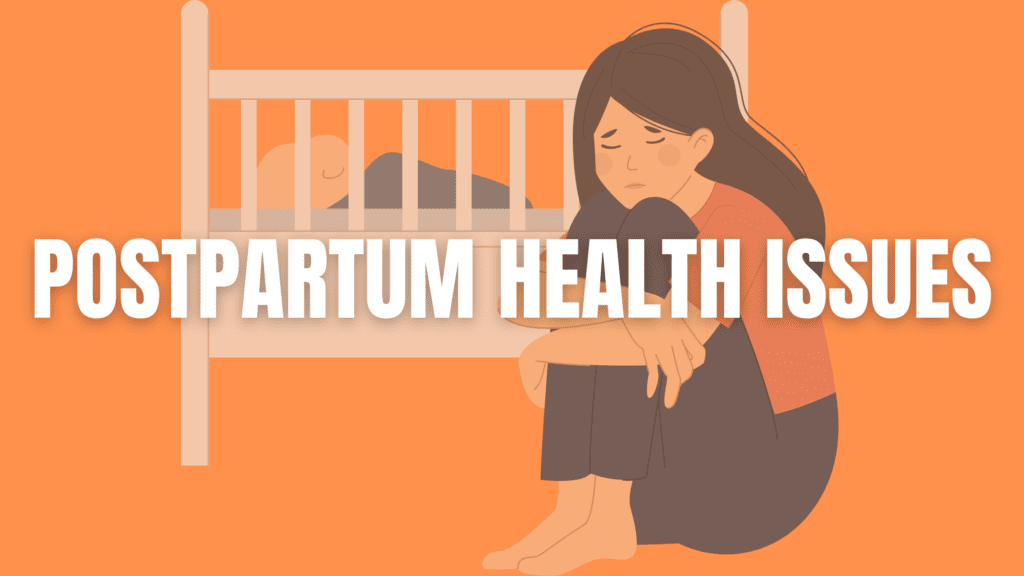Bringing a baby into the world is one of the most beautiful experiences in life. But while everyone focuses on the newborn, the mother’s health often takes a backseat. The postpartum period – the first weeks and months after giving birth – can be filled with joy, exhaustion, and unexpected health challenges.
If you’re a new mom or know someone who just had a baby, here are some important postpartum health concerns to watch for. Remember, healing takes time, and you deserve just as much care and love as your baby.
1. Postpartum Depression and Anxiety
The Truth: It’s normal to have mood swings after childbirth (often called the “baby blues”), but if feelings of sadness, anxiety, or hopelessness last more than two weeks, it could be postpartum depression (PPD) or anxiety.
Signs to Watch For:
- Feeling overwhelmed, sad, or numb
- Difficulty bonding with your baby
- Severe anxiety or panic attacks
- Thoughts of harming yourself or the baby
What to Do: Talk to a doctor, therapist, or a trusted loved one. You are not alone, and help is available.
2. Physical Pain and Recovery
The Truth: Your body just went through a major event! Whether you had a vaginal birth or a C-section, recovery takes time.
Common Issues:
- Vaginal soreness and stitches pain
- C-section incision pain
- Back pain from labor and breastfeeding
- Hemorrhoids and constipation
What to Do: Rest as much as possible, use pain relief options approved by your doctor, and don’t hesitate to ask for help. Warm baths and gentle movement can also aid recovery.
3. Breastfeeding Challenges
The Truth: Breastfeeding is natural but not always easy. Many new moms struggle with pain, low milk supply, or latching issues.
Common Problems:
- Cracked or sore nipples
- Engorgement or clogged ducts
- Mastitis (a painful breast infection)
What to Do: See a lactation consultant, try different breastfeeding positions, and remember that formula is always an option if breastfeeding doesn’t work out.
4. Sleep Deprivation and Fatigue
The Truth: Newborns wake up often, and sleep deprivation is real. Lack of rest can make everything feel harder.
How to Cope:
- Sleep when the baby sleeps (even if it’s a short nap)
- Ask for help with nighttime feedings
- Accept that household chores can wait
Your rest matters too – don’t feel guilty for taking breaks.
5. Hormonal Changes and Hair Loss
The Truth: Hormones fluctuate wildly after birth, leading to mood swings, sweating, and even hair loss.
What to Do:
- Stay hydrated and eat nutritious meals
- Take postpartum vitamins if recommended
- Be patient – your body will adjust in time
6. Pelvic Floor Weakness and Bladder Issues
The Truth: Many women experience leaking when sneezing, coughing, or laughing due to weakened pelvic muscles.
What to Do:
- Do Kegel exercises to strengthen muscles
- Talk to a doctor if leakage doesn’t improve
- Consider seeing a pelvic floor therapist
7. Relationship and Identity Changes
The Truth: Motherhood changes everything, including relationships with partners, family, and even yourself.
How to Cope:
- Communicate openly with your partner
- Give yourself grace as you adjust
- Remember that you are more than “just” a mom – your needs and dreams still matter
You Are Not Alone
Postpartum recovery is different for every mother. Some days will be beautiful, and some will be overwhelming. But one thing is true – you are not alone.
If you’re struggling, reach out. Whether it’s to a doctor, a friend, or a support group, help is available. You are strong, you are worthy, and you deserve love and care, just like your baby. 💜
If you know a new mom, remind her that she is doing an amazing job. Sometimes, the best thing you can say is, “How can I help?” Because every mom deserves support on this journey.

